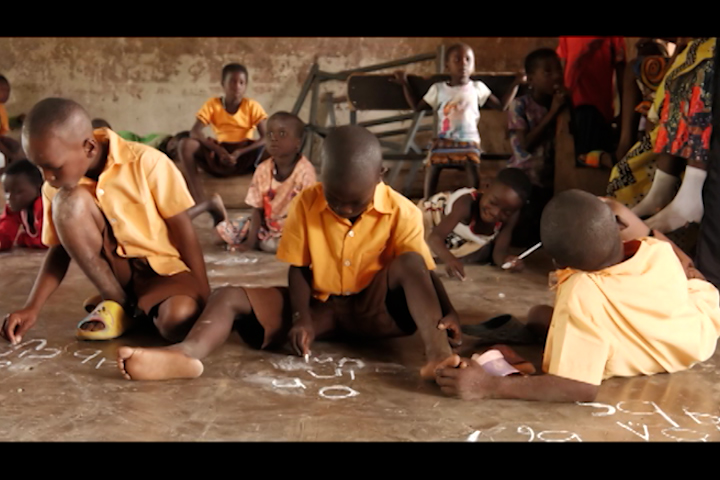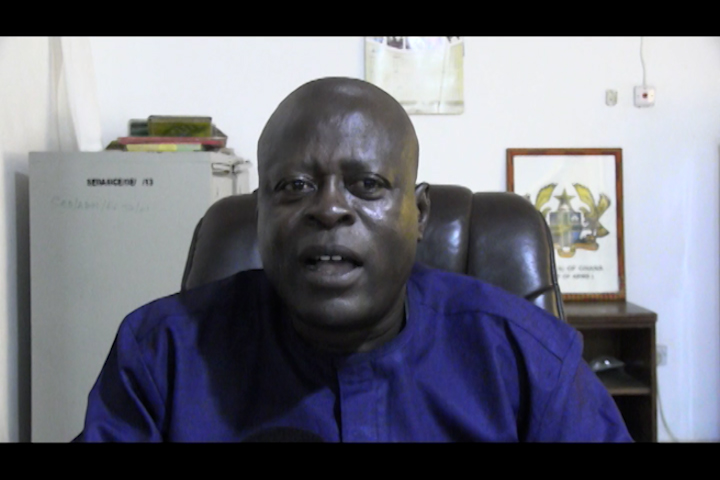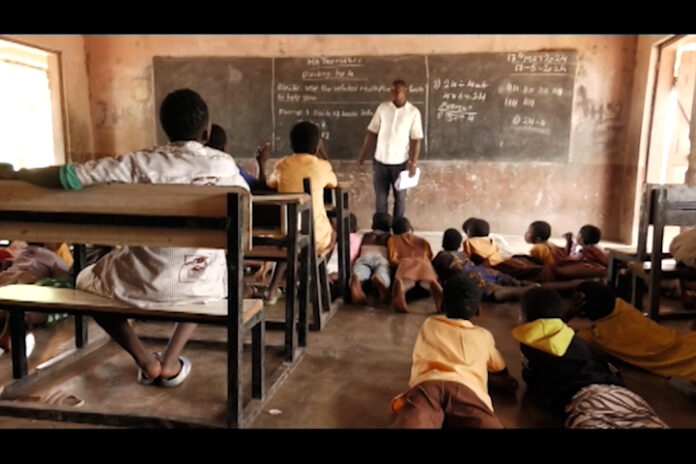Government’s investment in education has come under scrutiny as schools in rural communities beg for attention.
At Kumo in the Sissala East municipality of the Upper West Region, absence of furniture and inadequate infrastructure are affecting teaching and learning outcomes.
Kumo is three hours’ drive from Tumu, the Sissala East municipal capital of the Upper West Region.
The community is gravely deprived and basic social amenities are non-existent.
The eventual growth of the community’s population prompted the Sissala East municipal education directorate to establish school there.
However, teaching and learning is compromised because the school is confronted by a myriad of challenges.
Key among concerns of the school is infrastructure.

Classrooms serving part of the school have been collapsed by rainstorm four years ago and have since not been rehabilitated.
The school does not have classrooms, forcing authorities to now resort to multi-grade form of teaching.
A three-unit classroom block and an office host kindergarten one to JHS 3 students.
However, during the dry season, other classes are hosted under trees.
Teachers are worried that the authorities have not been able to remedy the situation, so pupils and teachers can heave a sigh of relief.
During contact hours, a different layer of challenge presents itself.
Pupils sit and do all academic works on the floor due to the absence of furniture.
An electricity pole and pieces of log serve classes one and two pupils, but even that is accessed on first come, first served basis.
Head teacher of the school said teachers find the situation troubling.
But the Municipal Chief Executive for Sissala East, Fuseini Yakubu Batong admitted that the furniture situation is widespread in the municipality, but steps are being taken to remedy the prevailing situation.

The Kumo school is a beneficiary of the government’s School Feeding Programme, but food is not prepared for the pupils.
The constant deterioration of the school’s kitchen is evident. Hunger has caused some of the pupils to stop schooling.
Some of the pupils who strive to come to school to be imparted by their teachers have given in at the time of the news team’s visit.
Kumo is not the only school facing this challenge.
The Metii primary school in the Wa West District is also battling with infrastructure challenges.
Teaching and learning are done under thatch-roofed sheds often disrupted by rains in the wet season.
A limited community-initiated classroom project is forced to be put to use even though it is not completed.
The challenges that Kumo and Metii basic schools face cut across the region, bringing to bare questions about government’s investments in education.
Parents are of the conviction that rural schools will better be positioned to compete with their counterparts in the cities, if government prioritizes commitment of resources to improve teaching and learning outcomes.
By Stanley Nii Blewu













